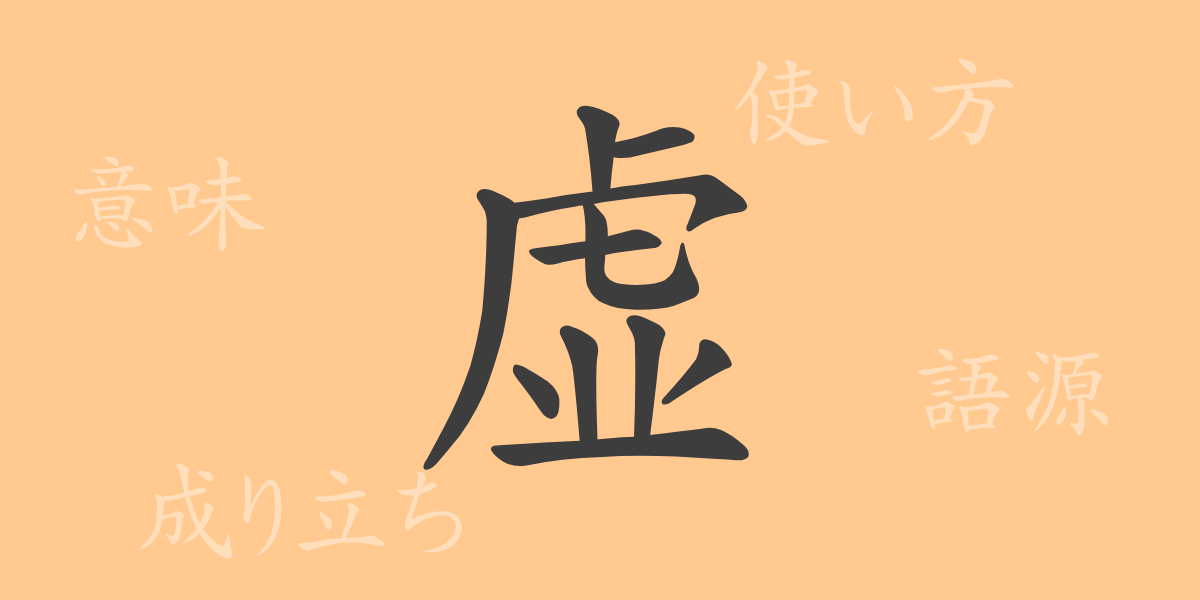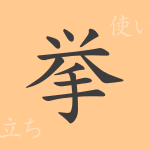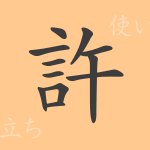The meaning contained within a single kanji character is deeply understood through its form and history. The Japanese common kanji “虚(きょ, kyo)” adds a unique nuance to our language with its presence and usage. This article explores the entirety of “虚(きょ, kyo)” from its etymology to its usage, including idiomatic expressions and proverbs.
Origin of 虚(きょ, kyo)
The kanji “虚(きょ, kyo)” originated in ancient China, developed from pictographs representing an empty container. Its form combines “亏(きょ, kyo),” indicating emptiness, and “人(ひと, hito),” representing a standing person. This combination evolved into “虚(きょ, kyo),” signifying an empty space or something lacking substance.
Meaning and Usage of 虚(きょ, kyo)
“虚(きょ, kyo)” means “empty,” “lacking substance,” or “false.” It describes a state of non-existence or something that appears substantial but is hollow inside. Figuratively, it is used to express concepts like vanity or falsehood. In everyday conversation and literary works, “虚(きょ, kyo)” adds depth to stories and expressions.
Readings, Stroke Count, and Radical of 虚(きょ, kyo)
The kanji “虚(きょ, kyo)” has multiple readings in Japanese.
- Readings: The on-yomi (Chinese reading) is “キョ(きょ, kyo),” and the kun-yomi (Japanese reading) is “うつろ(うつろ, utsuro).”
- Stroke count: 11 strokes.
- Radical: 虍(とらかんむり, torakanmuri).
Idioms, Proverbs, and Phrases Using 虚(きょ, kyo)
There are many idioms, proverbs, and phrases in Japanese that incorporate “虚(きょ, kyo).” Here are a few examples:
- 虚心坦懐(きょしんたんかい, kyoshin tankai): Open-mindedness without prejudice or preconceptions.
- 虚虚実実(きょきょじつじつ, kyokyo jitsujitsu): Skillfully using both reality and illusion.
- 虚言癖(きょげんへき, kyogen heki): A habit of lying.
- 虚無感(きょむかん, kyomu kan): A feeling of emptiness or nihilism.
- 虚心(きょしん, kyoshin): An open and honest heart without preconceived notions.
These idioms and phrases often reflect the Japanese mindset and cultural attitudes, offering guidance on behavior and thought.
Summary of 虚(きょ, kyo)
The kanji “虚(きょ, kyo)” is an essential element of the Japanese language due to its historical background and profound meanings. From describing emptiness to expressing inner human emotions, “虚(きょ, kyo)” is used in various contexts, symbolizing the richness of Japanese. Through this exploration, we hope readers can appreciate the multifaceted nature and charm of “虚(きょ, kyo).”

























